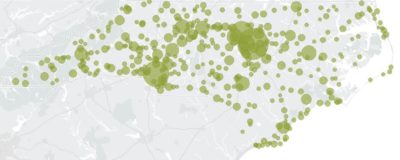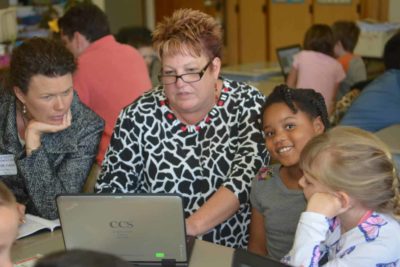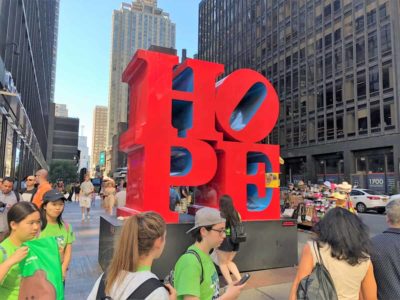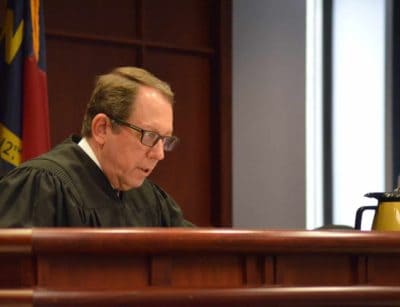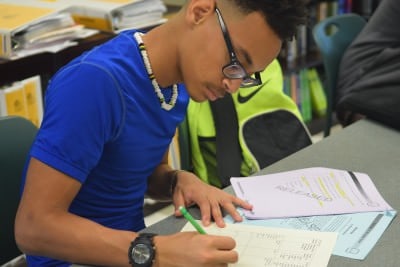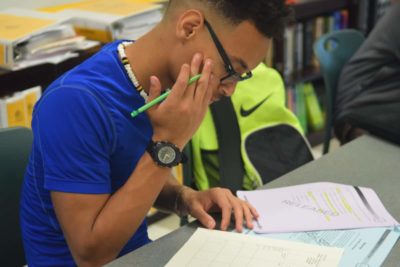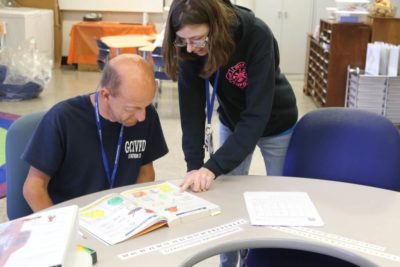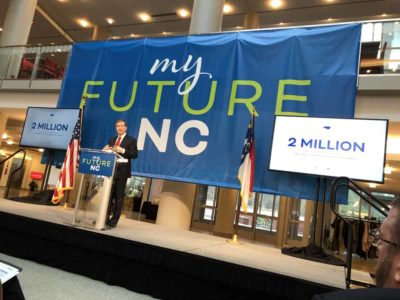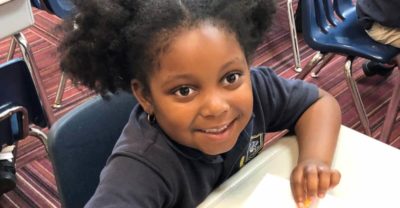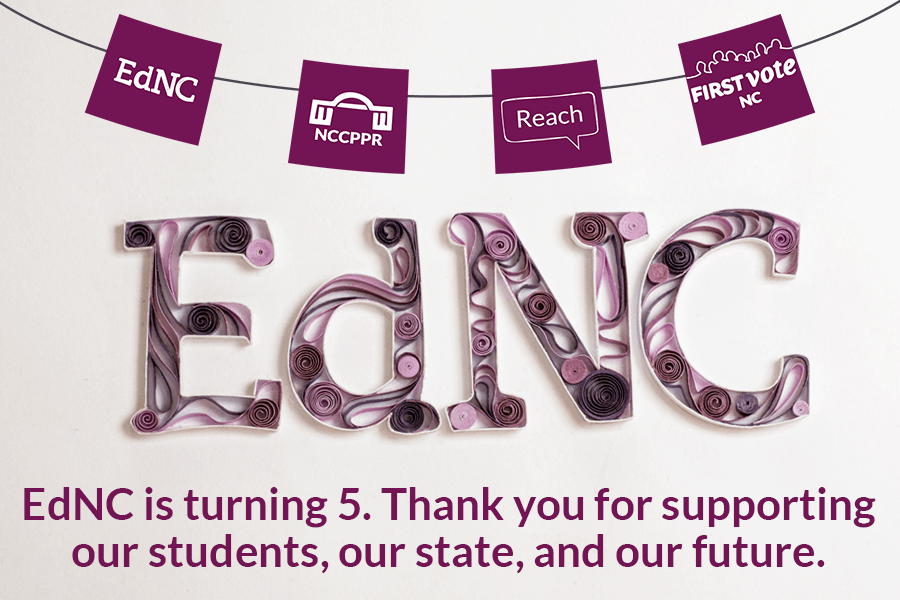
EducationNC launched on January 12, 2015 with these core beliefs:
it’s all about our students,
nothing is more important to the future of North Carolina than their education, and
too many stories go untold — stories of teachers, leaders, and programs doing incredible work each and every day in all of our educational settings serving students from birth to career, and stories about what is and is not happening across our state to build a 21st century workforce.
EducationNC provides citizens and policymakers with independent data, news, research, information, and analysis about the major trends, issues, and challenges bearing on education. And we engage you — all of you — in our architecture of participation so you can weigh in on the issues too.
To date, we have published 4,730 articles lifting up just over 900 voices from across our state, collectively writing the story of education in North Carolina.
Our layered media strategy
At EdNC, we used a layered media strategy that starts with social first content as we are covering meetings where policy is being made or covering schools and community colleges where policy is being implemented.
Our independent news reporting happens in real time as the stories unfold, but we follow up on the issues surfaced by the news with in-depth policy research and analysis.
Our surveys allow you to weigh in on the issues and our work — sometimes our reporters follow up with you and you become a source for a story; other times, we go on to share your responses with policymakers.
You can see the strategy in our coverage of Leandro from a video designed for social to breaking news on the release of the WestEd report to a survey about your reactions to an analysis of the historical context of the report to ongoing coverage of the court and the governor’s commission. Our team is working on a series about the eight critical needs identified in the report so you can see how they play out on the ground. In a variety of ways, we also share other’s perspectives on Leandro — some we include in our daily digest, some we include in our news aggregation, some we post, and some we share on social media.
“Thank you for your detailed reporting on the Leandro Commission. If not for EdNC, there would be almost no public record of the Commission’s meetings. That makes it all the more important that your coverage continues to be available.” — David Cooper, Elon University
Our theory of change
Our media strategy is reflected in our theory of change. We have seven drivers of impact: journalism as the fourth estate in a democracy, in-depth research, building and engaging our audience, tracking the impact of our work, moving the needle on policy change, responsive experimentation in the new media and nonprofit world, and increasing leadership capacity statewide.
500+ of our readers recently completed an impact survey, and here is how they rank the importance of our drivers:
- policy research on issues surfaced by the news (1st highest priority in our survey)
- providing the news in real time (2nd)
- tracking stories of impact resulting from our work (3rd)
- moving the needle on policy change (4th)
- increasing leadership capacity (5th)
- building and engaging our audience (6th)
- responsive experimentation in the new media and nonprofit world (7th)
Among respondents to our impact survey, 69% said they discuss what they read on EdNC with their colleagues, 31% said they directly applied knowledge they gained on EdNC to their professional life or job, 24% share our articles on social media, 14% changed their mind about an issue because of something they read on EdNC, 11% comment on our articles, and 9% go on to discuss something they read on EdNC with a policymaker or legislator.
In 2020 and five years in, we count moving our audience through that funnel of engagement as impact.
Reporting the news in real time
Sometimes our news reporting looks like following a story over time, like our coverage of Istation.
Sometimes it looks like comprehensive coverage of an issue like early childhood or learning differences.
Sometimes it looks enterprise journalism, like our reporting on literacy. This story was in the works for almost a year.
Alex Granados, our senior reporter, has been with EdNC since day one. He covers teachers and principals, all kinds of school choice, and lots and lots of meetings. Sometimes his tidbits show up as his Grumblings and Rumblings.
Policy research surfaced by the news
Our policy research answers our questions and yours.
We have been researching the role of principals in schools and communities since we launched.
What’s the difference between a great teacher and an effective teacher? Do you know what clinical practice is? We are here to answer those questions.
EdNC is often the only outlet covering certain issues in our schools — for example, Juuling and our ongoing research on the importance of data systems.
Sometimes we use convenings as a way to build relationships and learn together — for example, Bridge, our gathering of educators, philanthropists, policyshapers, and policymakers.
“I want to thank you for the outstanding coverage over the past year. It was not only extraordinary content, but the range of topics was remarkable. Your work has indeed made a difference in public awareness and public discourse on the issues of our time in education.” — Ann Goodnight
Building and engaging our audience
An article in The New Yorker on the state of journalism says, “If journalism has been reinvented during the past two decades, it has, in the main, been reinvented not by reporters and editors but by tech companies, in a sequence of events that … resemble a series of puerile stunts more than acts of public service.”
When we asked ourselves what it would look like to have a conversation with all of North Carolina, perhaps it is no surprise we didn’t find the tools we needed.
So with the help of our friends at Public Input, we started building the tools ourselves, and along the way we realized we were building a suite of tools other media outlets might use too.
We believe listening matters. We believe relationships matter. Reach is our public service.
Reach was built with people at the core. The tools are designed to connect us to people and people to us, allowing us to discuss the issues in real time so we can better understand communities across our state by listening deeply.
Using Reach, we’ve grown our monthly users from 21,654 to 41,954 and our monthly pageviews from 42,254 to 74,641. Much of our audience comes to us on social media. Five years in, we have 21,000 likes on Facebook. On Twitter, there are almost 11,000 people who follow @EducationNC, but others follow our team with a collective reach of 28,752. We have five newsletters, and we send out about 120,000 emails each week. We reach even more people via text messages.
For ourselves and other outlets that use Reach, we’ve developed ethical guidelines on our responsibility to our audience and the public as we use these tools to engage people in our work.
In 2020, we will be bringing in engagement fellows quarterly to advise us on best practices in building audience, starting with an overhaul of our newsletter strategy and moving into social media before tackling search engine optimization and search engine marketing. We look forward to learning from the best of the best and then sharing our learning with others.
Tracking stories of impact resulting from our work
At EdNC, we believe this — our students, our state, our future — is an all of us. The issues faced by our students and our state are too big for one leader, one organization, or one political party.
We support the work of other leaders and other organizations. Sometimes you can see our work in their communications, for example the NC Early Childhood Foundation’s Attendance Counts report, the Rural Center’s small business dynamism video, distributing the Public School Forum’s Education Matters, and our work with the Governor on his DRIVE Summit and state Superintendent Mark Johnson on his #NC2030 plan.
Perhaps our greatest impact has been in our coverage of community colleges, thanks to a grant from the John M Belk Endowment. The 58 community colleges received little to no coverage prior to EdNC’s blitz of all 58 in 2018.
“I believe your interest and that of EdNC can be one of the most important things that has ever happened to our community college system.” — Former Lieutenant Governor Walter Dalton, now the president of Isothermal Community College
From early colleges to residency determination services to attainment to parity funding for work force development, the work of EdNC ends up changing public policy.
A reporter’s note on the impact of our work on Juuling:
Last year, I started to hear a lot about this thing called Juul, mostly from teens. It was an e-cigarette, and it was all the rage. It fit into the palm of your hand and plugged into your computer to charge. It also packed a punch of 5% nicotine, which doesn’t sound like much — except for it is, because one pod has the same amount of nicotine as a pack of cigarettes — and it had kids hooked.
I realized that the issue, while making headlines across the nation, wasn’t well understood by teachers or parents, and that kids themselves weren’t aware of the dangers. They’d all just been told it was safer than smoking.
After the series, I visited after-school parent conferences on e-cigarettes and saw how local doctors, law enforcement, and school leaders came together — especially when students started vaping dangerous substances, a whole separate issue beyond just nicotine. I spoke at regional public health meetings, and at these meetings I met a mother whose son had been sent to rehab (in California, because there were no offerings in N.C.) for 40 days for nicotine addiction caused by Juul. My Q&A with her about her experience was a popular article that I’m sure resonated with other parents. That same mother and her son would later stand by the Attorney General when he announced that he would be filing a lawsuit against Juul Labs, Inc. — the first state in the country to do so.
It has been a rewarding experience to literally dive into this problem starting with students in the classroom and, after continued reporting, see decisions being made at the highest levels in the state.
— Yasmin Bendaas
Our impact extends to lifting up the most important issues to a national stage, like this article on school safety in The 74 and our work with the Spotlight on Poverty which found its way on to MSN.com.
Leadership development
If there is one thing we are proud of in these five years, it is our capacity to build leaders and lift up leadership — and not just our own.
For example, the leadership of James Ford. The Kenan Charitable Trust made an investment in his leadership — an investment for James to be James — which started with a sabbatical, allowed him to serve on the N.C. State Board of Education and the N.C. Leadership Forum, supported his in-depth look at the history of race and the current state of equity in our schools, and led to the creation of the nonprofit CREED.
For example, the leadership of Dr. Bridges, Erin Swanson, Donnell Cannon, Jenny O’Meara, Hillary Braden, and Sayre Man in Edgecombe County, who are doing groundbreaking work in student-inspired school redesign with the North Phillips School of Innovation.
We believe in servant leadership, and we strive to support the leaders who will shape our future.
About EdNC
EducationNC is a collection of nonprofits and initiatives, a force multiplier for our students, our state, and our future.
Our mission is to expand educational opportunities for all children in North Carolina, increase their academic attainment, and improve the performance of the state’s public schools. We provide citizens and policymakers with nonpartisan data, research, news, information, and analysis about the major trends, issues, and challenges bearing on education. We gather and disseminate information employing the most effective means of communication, primarily through the Internet. In addition to the content distributed, we encourage an active and connected community of those interested in education policy and practice throughout the state. Our work encourages informed citizen participation and strong leadership on behalf of the school children of North Carolina.
EdNC is North Carolina’s go-to source for data, news, information, and analysis about education from birth to career. The N.C. Center for Public Policy Research is our 40-year-old, nonpartisan think tank studying the most important policy issues facing our state. First Vote NC allows high school students to participate in online, simulated elections so that they graduate civic ready. Reach NC Voices, our architecture of participation, connects us to people and people to us to discuss public policy in real time so we can better understand communities across our state.
Collectively, in an era of transition for news organizations and think tanks, we are a pioneer in the new media landscape. June 30, 2019 marked the end of our fifth fiscal year, and we have been operating online since January 12, 2015.
EdNC’s Team
At EdNC, you will not hear us refer to the people who work with us as staff. We are a team, and with a nod to the North Phillips School of Innovation, we are organized into houses. The upshot is that we have three cross-functional groups of storytelling experts, each with ability to produce independent news and policy research, with multimedia and engagement strategies, and editing support on the front and back end of content production. Professional development is built into our work plan for the year both internally and externally, plus a week of EdCamp in the summer for upskilling.
Mebane Rash is our CEO and editor-in-chief. Alex Granados is our senior reporter. Nation Hahn is our director of growth. Liz Bell is our early childhood reporter. Nancy Rose is our chief operating officer. Molly Osborne is our director of policy. Analisa Sorrells is our chief of all the things and associate director of policy. Robert Kinlaw is our multimedia strategist. Rupen Fofaria is our learning differences reporter. Carol Bono is our visuals and interactives editor. Taylor Shain is our videographer. Alli Lindenberg is our engagement specialist. Eric Frederick is our news and audience editor.
We are excited to announce that Mary Willson has joined the EdNC team as director of engagement. She is one of 16 media leaders nationally in the very first cohort of the Executive Program in News Innovation and Leadership at the Craig Newmark Graduate School of Journalism.
EdNC consults with specialists as needed, including currently Jay Dawkins and his company Public Input on all things tech; Caroline Parker who helps us with faith, STEM, Bridge, and First Vote; and Elizabeth Shealy, our website developer.
Our thanks to Nate Barilich, Ferrel Guillory, Kelley O’Brien, and Outfitters4 who play invaluable roles on our team. Many thanks also to our attorney, Amanda Martin, and our accountants, Batchelor, Tillery & Roberts, LLP.
We could not do what we do without the more than 900 of you statewide who lend your voice and your time to our architecture of participation. Thank you for being part of the EdNC team.
EdNC’s Board of Directors
We are thankful everyday for our board and your dedication to our work, but more importantly your dedication to our students, our state, and our future. A special thanks to our founders, Gerry Hancock and Ferrel Guillory, and our executive committee.
EdNC’s Supporters
Our funders breathe life into our work. Thank you.
Here are our supporters by year.
EdNC’s Annual Report and Financials
Here are EdNC’s previous annual reports. Here are EdNC’s audited financial statements and tax returns.
Thank you for your ongoing support of EducationNC. We could not do our work without you. Expect great things from us, and please consider making a contribution so we can continue to grow our impact in 2020 and beyond.
Behind the Story
Artwork for this article is by Carol Bono.


